Table of Contents
There’s a moment in almost every intermediate Arabic student’s journey when you feel like you’ve hit a roadblock. You know enough words to construct an essay (sort of), but not enough to explain a film plot with any kind of nuance. I was like that. I studied Arabic at SOAS in London, but my Arabic skills had begun to atrophy over the past few years. Even the idea of having a conversation in Arabic was daunting. I could read and write, but my speaking skills – at least to my mind – weren’t quite there.
It’s easy to give up at this point: you can console yourself by thinking that at least you can do x or y. But, as I’ve realised over the course of three years of resuming Arabic study – is that it is entirely possible to get out of that comfort zone and move forward. I’m an example of that. I spent nearly six months to start getting back into Arabic, using a mix of methods and approaches, from spaced repetition to online tutoring. I received a Kathryn Davis Fellowship to study Arabic at Middlebury College’s Intensive Summer Language Program in the U.S., and was placed at the highest level in the programme. I currently live in Jordan, where I am continuing my study of Arabic and use Arabic in almost all areas of my life. I now host an Arabic podcast and write an Arabic newsletter, and I coach language students on how to develop self-study methods.
But how is this doable, you may ask? Mastering any language – and particularly Arabic – is a mix of goal-setting, attitudes, and behaviours.
To understand where you want to be in your Arabic, you first need to assess what level you’re at. If your pronunciation is still an issue, or you struggle with a critical element of grammar, don’t push forward just because it seems like the right thing to do. Take the time, instead, to focusing on your trouble spots before moving forward.
Target Your Learning
Language learners – particularly intermediate Arabic students with a couple of years of study behind them – are very prone to setting ambitious goals like “study for 3 hours every day” or “learn 5000 words in the next 3 months.” This is setting yourself up for failure right away. It is better to create specific goals that you can envision an end-state for. You want some challenge to those goals — otherwise you’ll get bored — but you want it to be reachable as well. And you want to set the goal so that it’s something you can get to work on immediately and finish within a few months.
Mindset
Carol Dweck has written and extensively researched the optimum ways to promote growth. One of her key discoveries has been the distinction between fixed and growth mindsets. This is hugely relevant to language study. Those who hold fixed mindsets believe that “if you are good at something, then it should be easy”. (And, conversely, if you’re bad at something, then it should be hard.) People with a growth mindset, on the other hand, believe that you need to work hard at something to become better at it. Having a fixed vs growth mindset is something which (it seems) can be changed. And the switch from fixed to growth mindset can sometimes happen with deceptively easy tactics: reframing the way you assess your successes and challenges, and how you understand and learn from your peers’ language learning processes.
Study Method: Find what works for you
Everyone is different. When you’re studying on your own — a common scenario for an Arabic student post-university or post-intensive course — you’ll want to experiment. Open up your mind to new ideas and ways of learning. Students often say they can only learn at night or have never tried Anki but just know they can’t stare at a screen. Try new ideas out, and give them time: you didn’t learn how to crawl or walk or speak your first language overnight: don’t expect the same from Arabic. For some ideas, try out CoachBot, a free tool I developed to solve the procrastination problem for intermediate-level language students.
Spaced Repetition
If you want to remember what you’re studying, you have to test yourself. Ideally, for optimum recall, the test should come at the moment when you’re just about to forget what you learnt. This way, the neural pathways that learning creates become stronger. If this all sounds complicated: it is. There’s an equation and everything. Luckily, there’s an app for that! Anki is the most powerful of the so-called ‘spaced repetition’ apps, but services like Memrise also exist and are pre-populated with Arabic materials.
Consume at the right level
The top priority for an intermediate-level Arabic student needs to be adding to your vocabulary. This can be done in a more deliberate way through a study of the Arabic ‘verb’ and root/derivation system, but an even easier way is to consume more, to read, listen and watch more. Volume will work wonders for someone stuck in a plateau, but it needs to be at the right level. Try to aim for 80-90% comprehension of whatever you’re consuming. We’re lucky enough that there are dozens of resources with free materials suitable for the full spectrum of abilities. (The premium version of my new book, Master Arabic, includes an extensive online database of resources.) By consuming interesting content, you’ll learn new words in the context of real sentences, which is always the best way to be studying vocabulary at this level.
Expose Yourself
There’s a longstanding debate over the relative merits of input versus output in second-language acquisition. We can leave linguisticians to debate amongst themselves: the reality is that you need to include an amount of speaking and writing in your study, even if you aren’t planning on ever using your writing formally. If you want to speak, you’ll need to get over any fear or feeling of embarrassment about your spoken abilities. Sadly, this is a common affliction of those who complete university programmes outside the Middle East. The solution: exposure. Use a service like iTalki or find a friend with whom you can put in dozens of hours speaking together. Try to be focused in how you approach this spoken practice: work on one topic at a time, become an expert in that one thing, practice it in discussion and then move on to the next topic. (Start with the most useful/common topics and steadily work your way out to the more arcane). For example, practice an order for pizza multiple times – with your specific requirements – before you get on the phone.
Get Feedback
Studies of expert performers, pioneered by K. Anders Ericsson, have revealed a technique called “deliberate practice” that gives great results. It hasn’t been extensively studied in the context of language learning but one of its core principles is the idea of immediate feedback. This means that when you write something, you want to find out when you’re making a mistake. (Tip: use Lang-8 for free corrections on your Arabic writing practice). When you speak, you want your teacher or friend to be correcting you when you say something half-correct. Without feedback, you’re just drifting and possibly are cementing bad patterns. And remember: feedback is neutral. It’s just course-correcting your knowledge of Arabic, so don’t take it personally if there are lots of mistakes. That just means that you’re learning lots!
Reflect
Another aspect of deliberate practice is testing theories and experimentation. As you study, you can keep track of theories as to what methods work best for you. (Tip: reserve a page in the back of your language notebook just for these observations.) Once you have a few that you think are really making a difference in your ability to absorb new words, or improve your spoken fluency, experiment to check that this really is improving your performance. As an example of this, I discovered that I learn vocabulary far better through the context of sentences and things I’m reading than if I’m just memorising huge lists of words sorted by their frequency of use. Since then, the only time I will learn words on their own is at the very beginning few months of learning a new language. The moment I have a few hundred words in my head, I switch to learning words through reading and listening.
Work with a Coach
For real leaps and gains, it can help to talk through your study plans and goals with someone who has been through similar situations and problems in the past. Talk your language goals through with someone who isn’t your professor or tutor, but rather a colleague, a friend, a family member; someone who can provide an outside, realistic perspective. A professional language coach will know hard-to-find resources, will keep you accountable to the goals you set for yourself and will offer suggestions for course-corrections in how you’re studying. For example, I spoke with someone when I urgently needed to ramp up my proficiency in Dutch following a medical emergency. Coaching allowed me to focus on the things that really mattered and I was handling conversations with doctors in a matter of months.
Learning Arabic isn’t an overnight or a months-long process. It takes years of commitment, time, money, and study. It is also inherently doable. And it is that feeling of success – when you find yourself progressing to a level of fluency that brought you to the language in the first place – that will help you move forward. Keep an open mind, learn from the best of new methods and ideas, and you’ll be well on your way to mastering Arabic.
Master Arabic
 “Master Arabic” is packed with resources and advice on how to break through to the next level in your Arabic. The premium edition comes with 13 expert interviews, discount codes for language learning services, a massive online resource list for materials, lifetime updates and a free copy for a friend!
“Master Arabic” is packed with resources and advice on how to break through to the next level in your Arabic. The premium edition comes with 13 expert interviews, discount codes for language learning services, a massive online resource list for materials, lifetime updates and a free copy for a friend!

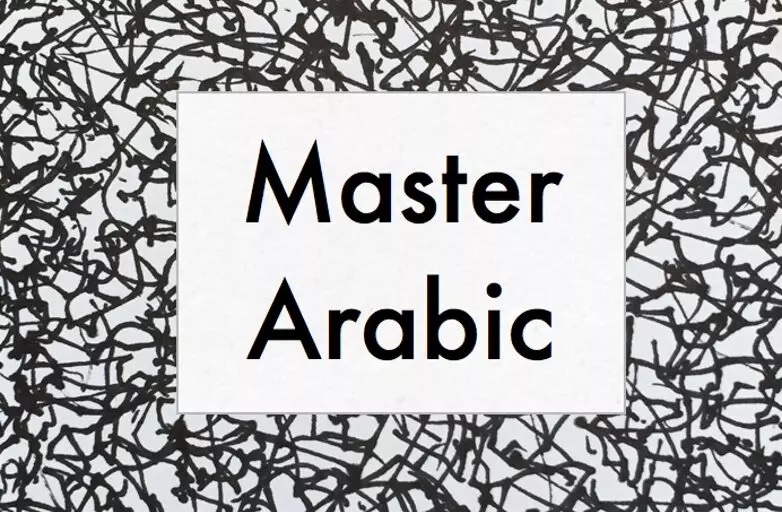
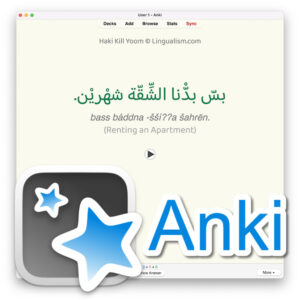
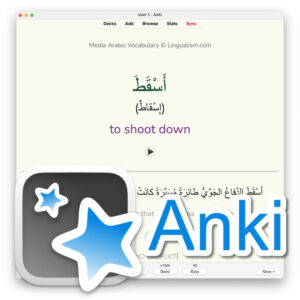
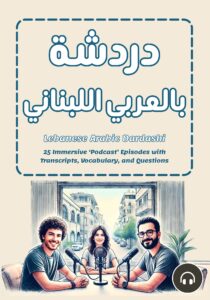
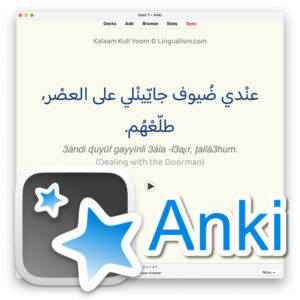
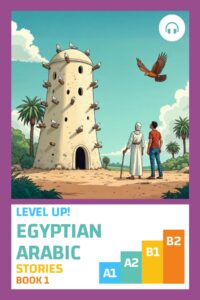

Is this book no longer available? The link is coming up with a 404
The link should be fixed now.
thank you. I eventually found it on Gumbot(?) and bought it from there.
I’m enjoying this book so far. It has some good recommendations for things I can implement to progress out of my level. I feel I’ve been stuck at a plateau for a long time and this book specifically acknowledges that and practical steps to take.
The digital format of the book could be improved. As it’s a pdf, the font is too small to view in a full page view on a Kindle Paperwhite. I converted the pdf to Kindle format and there are many formatting problems. I would like to contact the author, Alex, but his only contact method is by snail mail. This is a very odd limitation on the reader in 2020. Interestingly, I’m up to the section of his book comparing the benefits of digital to paper. In the case of email v snail mail, there’s really no comparison.